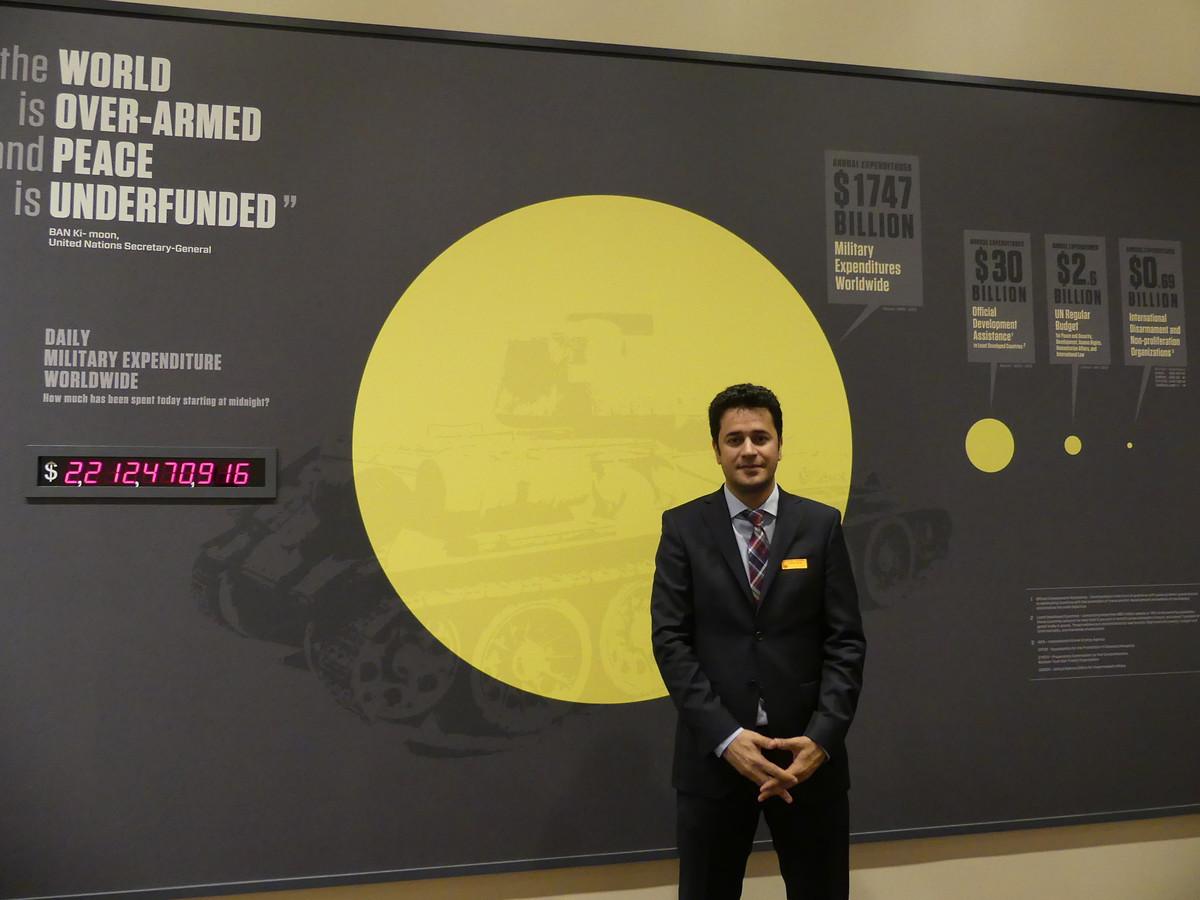Tackle the problems at their roots – with the help of the UN - Foundation Office New York
Event Reports
From October 22nd to 25th, the KAS office in New York, with the support of the KAS office Syria/Iraq, organized a dialogue program for a high-ranking five-member delegation from Iraq with representatives of the United Nations (UN) and Middle East experts. The delegation consisted of Dr. Hanan Saeed Mohsin Alfatlawi, opposition leader in the Iraqi Parliament, Dr. Mohammedali Yaseen Taha, member of the Kurdish Regional Parliament, Prof. Dr. Dlawer Ala'Aldeen, founder and director of the Middle East Research Institute and former minister of education in the Kurdistan Regional Government, Ali Al-Mawlawi, head of research at the Al-Bayan Center in Baghdad and Hassan Hadad, external adviser of the World Bank at the Iraqi prime minister's office. The delegation was accompanied by Nils Wörmer, head of the KAS Syria/Iraq office.
The visit of the Iraqi delegation to New York can be described as a “KAS premiere”. For the first time, Iraqi representatives visited the United States on invitation of KAS. Over the past few years, KAS headquarters in Berlin have repeatedly welcomed delegations from Iraq and the Kurdistan region of Iraq for high-level talks with representatives of the German Federal Government and Members of Parliament. Given the current tensions between the Iraqi central government in Baghdad and the Kurdish regional government in Erbil it seemed particularly important that the delegation coming to New York was joined by representatives from both cities.
The objective of the visit to New York was to discuss the role of the United Nations in Iraq with UN representatives and to analyze how the organization can best contribute to solving some of Iraq’s fundamental problems. For this reason the delegation met with representatives of UNHCR and UNDP; furthermore with the Director of the Middle East and West Asia Division of the Department of Political Affairs, with World Bank officials working closely with the Iraqi government, with the Counter Terrorism Executive Directorate and the UN Security Council’s ISIL (Da’esh), Al-Qaida and Taliban Sanctions Committee.
Central issues that surfaced repeatedly during the talks were:
-The need for stabilization of the structurally weak country: a clear distinction has been made between humanitarian aid, as provided by UNHCR or UNICEF in Iraq by running refugee camps and caring for traumatized women and children, and longer-term stabilization efforts, such as the economic development efforts supported by the World Bank. Many of the dialogue partners agreed that this mammoth task calls for joint efforts by the Iraqi state and society, international donors (such as the UN, World Bank and EU) and bilateral donors (for example, Germany, France, the UK).
-National reconciliation: after all that has happened in Iraq over the last 15 years, the rifts among the country's ethnic and religious groups are now deeper than ever before. At the same time, the fragmentation among those groups is stronger than one might assume from outside: For example the Shiite group that dominates the Iraqi government is deeply divided among itself; the case is similar with the leaders in the Kurdistan region of Iraq. The undeniable influence of regional powers, above all Iran, Saudi Arabia and Turkey, makes the already very complex domestic political situation even more complicated. After the traumatizing rule of the Islamic State (IS) in parts of the country the challenges now arise in prosecuting the IS fighters (especially doing it in a way that contributes to national reconciliation), re-integrating them into society and preventing future radicalization.
-The political system of Iraq suffers from the widespread corruption. This is one reason why the Iraqis hardly trust their politicians: According to a study by the Bayan Center, only 11% of the people in Iraq would again vote for their current representatives.
A key concern in the discussions with the UN representatives was that the international community should help tackling the root causes of the problems in Iraq. In addition, the delegates underlined the contribution that the UN could make to policy development and institution building. Some even called for "conditioned help": Certain funds should be tied to reforms in the area of the rule of law and good governance. All in all, the delegates asked for a more determined and assertive role of the UN in Iraq.
In an off-the-record discussion at KAS New York Iraq experts from various UN organizations, permanent missions and NGOs had the opportunity to engage directly with the delegation members. Another exciting highlight of the three-day program was a political colloquium with representatives from Columbia University and Human Rights Watch. The experts made policy recommendations in their respective areas - preservation of cultural heritage, the situation of human rights and the political situation in Iraq - to which the delegates responded directly.
The program also allowed the delegates to learn about innovative approaches within the UN system: During a visit to the UNDP Innovation Team they learned about alternative ways of funding, such as crowd funding, and data innovation, which means the use of large amounts of data to predict social and economic problems. This new approach is already put into practice by the UN program Global Pulse. In Iraq UNDP has started the #inno4dev in Iraq initiative which aims at using innovative tech approaches for better development results. Public-private partnerships on counter-terrorism with major Silicon Valley companies such as Facebook and YouTube have also been discussed during the program.
During the talks the delegates took the opportunity to discuss key questions with the UN representatives and make follow-up appointments for meeting in Baghdad and Erbil, where it is, according to them, much more difficult to get through to UN staff.
In the final evaluation the group members underlined that - in addition to all the gained knowledge and contacts – it was particularly beneficial for them to deepen the personal ties with their fellow delegates, especially with the ones from the respective “hostile region”.
Translated by:
Victoria Liedl
































